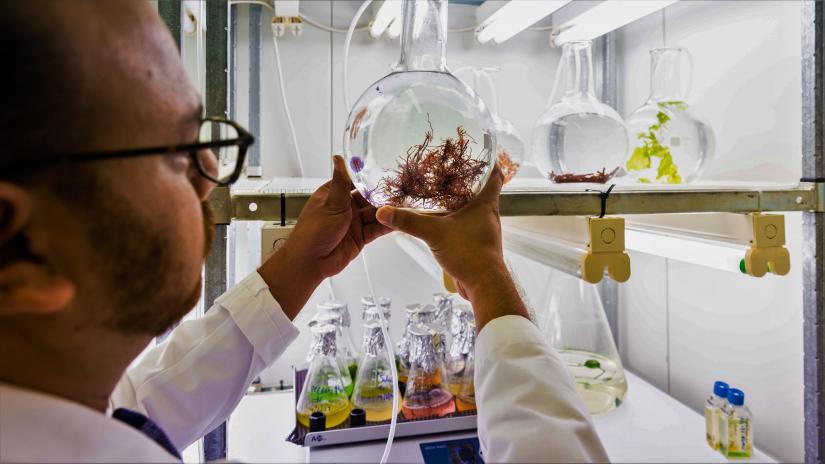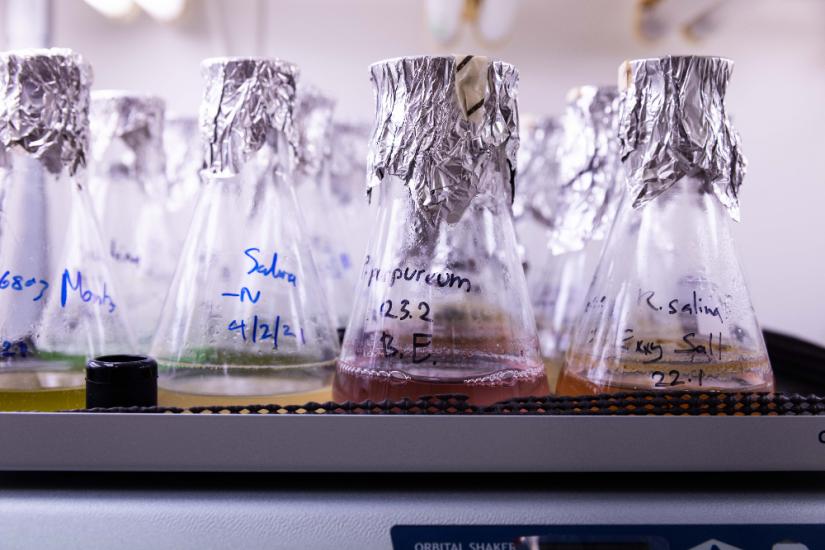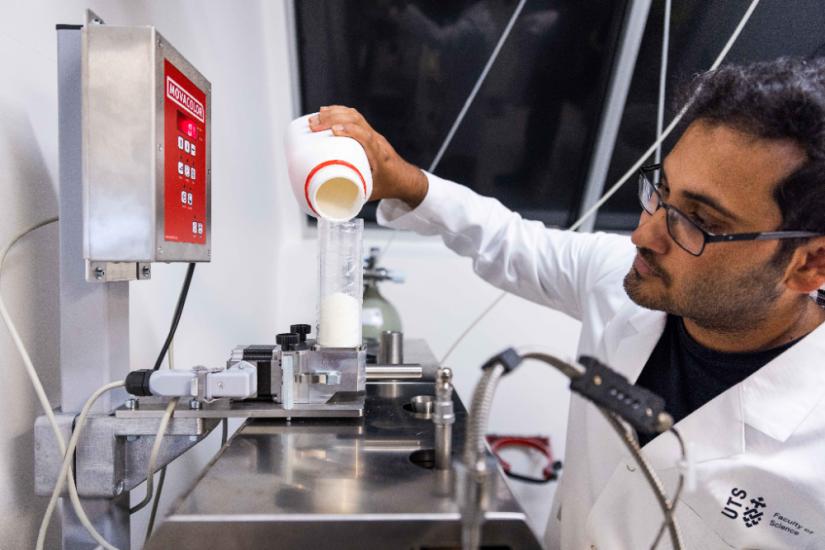A bioplastic product made from red seaweed, developed by UTS researchers, has just received a significant funding boost to take it to the next stage of development.

Dr Manoj Kumar holds red seaweed used to create bioplastic. Image: Andy Roberts
The world’s oceans and waterways are awash with plastic pollution that will never break down and seem impossible to clean up. A bioplastic product made of red seaweed that’s being developed by UTS for production in the Philippines, is a small step towards a sustainable alternative. It’s also a big deal to a million people who rely on red seaweed to survive.
Plastic pollution is “a global disaster, second only to global warming”, Peter Ralph, Professor of Marine Biology and Director of the UTS Climate Change Cluster (C3) said.
“Every year, about eight million tonnes of plastic waste escapes into the oceans from coastal nations.”
Professor Ralph is leading the ‘SEAweed Tech’ project, which is based in the Philippines, where one million coastal-dwelling people depend on seaweed for their income – and 75% of the national fishing stocks are now depleted.
The Philippines produces 1.88 million metric tonnes of plastic waste each year. The availability of cheap plastic and the lack of a solid waste management plan, combined with poverty, create a perfect storm for plastic pollution.
The ‘SEAweed Tech’ project aims to replace petro-plastics with a biodegradable alternative. “We want to empower local communities to manage their marine plastics pollution, and develop a new green industry that can generate a new income source for seaweed farmers in coastal communities in the Philippines.”

Image: Andy Roberts
SEAweed-Tech (the SEA stands for Southeast Asia) is in collaboration with Coast 4C. Together, they aim to develop an innovative green industry for coastal seaweed farming. The project hinges on the development of novel, zero-waste green chemistry to produce seaweed-based bioplastics, initially in the Philippines where there is already large-scale seaweed farming.
Everything about the seaweed-based bioplastic is sustainable. Its manufacturing process produces zero waste, its supply chain is clean and green and it is creating local, future-proof employment as it moves from a successful concept testing phase to product development.
Such development is made possible through another significant funding boost of $840,000 over three years, granted by the international philanthropic organisation Julius Baer Foundation, based in Switzerland.
“We are proud to support the ‘SEAweed Tech’ project, helping to reduce marine pollution, while stimulating new economies” said Christoph Schmocker, CEO of the Julius Baer Foundation.
To be successful, the bio-based plastic will need to be inexpensive. UTS marine biologist Dr Manoj Kumar said the initial funding support that the project received (also from the Julius Baer Foundation) resulted in a breakthrough. It allowed the team to create a novel, zero-waste green chemistry to produce seaweed-based bioplastics, initially in the Philippines where there is already large-scale seaweed farming.
UTS polymer chemist Dr Parijat Ray said the new extraction method is more suitable for small scale implementation with lower technological barriers than traditional seaweed extraction methods.
“We wanted to make the process as straight-forward as possible so seaweed farmers can implement this technology locally, and sell their partly-processed seaweed materials into new supply chains, to support the rapidly growing demand for bioplastics,” he said.

UTS polymer chemist Dr Parijat Ray. Image: Andy Roberts.
UTS biochemist Dr Unnikrishnan Kuzhiumparambil said the aim is to have net zero waste, so there will be no liquid or solid waste, no harmful chemicals or by-products created, and the bioplastics will biodegrade in a way that won’t pollute the environment.
Professor Ralph said having developed the technology to use carrageenan to create a range of bioplastics, the next funding phase will allow the team to optimise our technology. By increasing production efficiencies, they can then develop the pathway to commercialisation.

